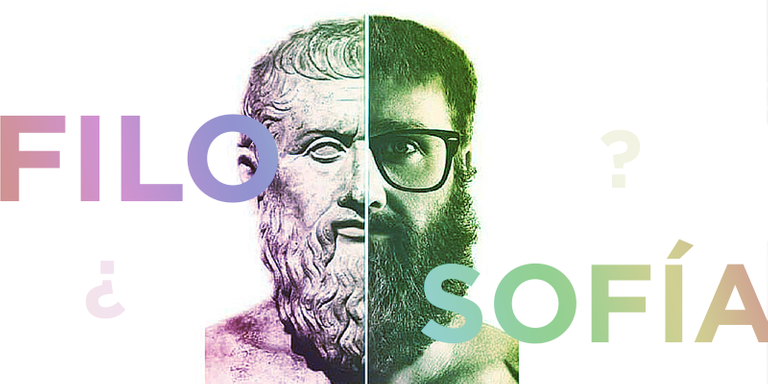We are all philosophers.
We are all philosophers.
By way of introduction I want to say that many people make the mistake of thinking that philosophy is taught, philosophy is not taught because he is part of the human being, he is born with reason and manifests himself as a matter, all of us who are capable to think and to construct a question, we are in the ability to philosophize, which is why a teacher's job is not to teach you to philosophize, but to provide the tools for you to do it and to do it in addition to a way deeper.
One of those tools that we teachers of philosophy usually use is precisely the history of philosophy and this is what I hope you read below. Of course, this other tool could perhaps be thematic development, that is, first establishing a question and then developing it. little by little, in that sense we can also hit it as another tool because there are finally several tools to expand its philosophical capacity, but I think that the one that best condenses the panorama is the history of philosophy because through it we can treat chronologically the main ideas that have been exposed through the centuries.
In the history of philosophy, therefore, we study the life and the main postulates of the most representative philosophers of all times, which leads us to review all areas of philosophy, the ontology, which includes the study must be, metaphysics which is the study of everything, the epistemology that is the study of knowledge, the logic that is the study of reasoning, the ethics that is the study of human behavior and the aesthetics that would come to be the study of beauty, these that some add some more, but I think the above already sums it up.
Today we are going to start from the basics, that is to say from a stage prior to the formal appearance of philosophy, it is important to specify this of formal appearance because, as I have already said, philosophy is a faculty inherent to the human being, inherent means that it is proper of something or that cannot be separated from it, which is why it would be an epistemological error to say that there was a stage in the history of humanity in which there was no philosophy, in a certain way there was philosophy, while the etymology of term suggests that philosophy is the love of wisdom, the search for knowledge, what happens is that that philosophy had not yet reached the maturity of the concept and that maturity occurs at a time in history when human beings We stop looking for supernatural or magical or divine explanations for things and rather we start looking for the explanation of rational order, (appearance of the sciences).
When that moment occurs, when that threshold occurs in which thought can already be considered philosophical, good for what we study philosophy is the moment established in the eleventh century before our era, we say that it has been established because naturally you cannot talk about the precise moment and neither the exact place, but by concept and by the historical vestiges we think that it is about XI centuries before our era and also in ancient Greece, with the appearance of the first sophists and it is that if we talk about referents perhaps we could think that at some point another civilization existed, centuries before or thousands of years before, even if they developed similar or more advanced forms of philosophy, it could be possible, although it is not probable, and we do not yet have any evidence to back us up. In fact, what we do have is a word invented by the Greeks to describe something that was new by then, philosophy.
And this that initially described the desire of the person to become wise, soon found a deeper essence, while the wise person who accumulates ancient knowledge and who is also in charge of transmitting those from generation to generation, the most philosophers it is the one that generates knowledge from the act of thinking and there is a difference of several thousand years in this regard, if we go back to the year 3000 before our era, in Sumer, we could see that within the first vestiges of writing there were tablets containing proverbs, moral laws and popular wisdom, it is a pre-philosophical period, in which the sage was an important subject in society, it is not surprising that in that same period many books of wisdom appear that intermingle moral teachings with historical accounts along with mysticism and divination prophecies, there are many that I will delve into in other publications; If you liked this brief introduction to philosophy, write me in the comments that you would like me to talk to you about.
0
0
0.000
0 comments
